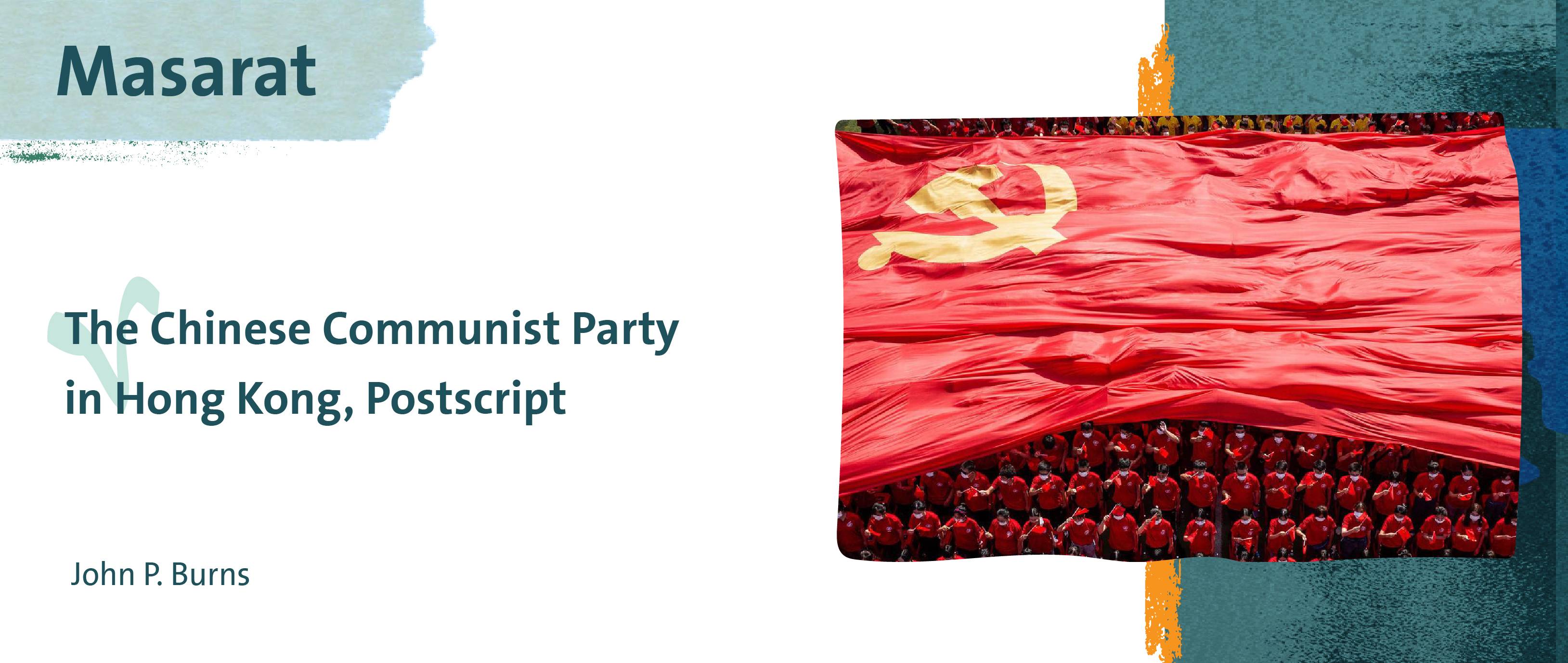The Chinese Communist Party in Hong Kong, Postscript
*This paper is a follow-up of the report published in 2022.
The role of the Chinese Communist Party (CCP) in the governance of Hong Kong cannot be overstated. The party was a constant presence in late colonial Hong Kong, wielding outsized influence in the territory through the united front. The party had considerable mobilizational power. China’s Leninist politicians drafted the Hong Kong Basic Law.The Basic Law laid down Hong Kong’s political institutions, grafted onto unreformed colonial, political, legal, and economic institutions and social structure that continued well beyond 1997. Indeed, 24 articles of the Basic Law set out institutional and policy continuity to ensure a smooth transition. It was deceptively smooth.
In 1997 the party adopted a largely hands-off policy on Hong Kong, giving the first Hong Kong Special Administrative Region (HKSAR) government considerable leeway, for example, not to implement Article 23 of the Basic Law requiring local Hong Kong legislation on national security matters. In 2003 the party, alarmed in the wake of widespread protest and demonstrations against official proposals to legislate on Article 23, changed the institutional architecture for Hong Kong policymaking in Beijing. Authorities set up the Central Hong Kong and Macau Coordination Group, headed by various Politburo Standing Committee members from 2003. It was a large, unwieldly group comprising representatives of the many organizations with business in Hong Kong, which were mostly ministries of the State Council. The party’s reach in Hong Kong gradually increased, especially after 2012 when in response to protests the newly appointed Chief Executive CY Leung abandoned local “national and moral education” for Hong Kong’s schools, a move the party reluctantly agreed to. Contention over political reform in Hong Kong spilled into the streets in 2014. The party responded by publicly reasserting its “comprehensive jurisdiction” over Hong Kong in a State Council White Paper. In 2017 party authorities laid down the Greater Bay Area (GBA) integration plan, signaling Hong Kong’s future role in the region. By 2018 Politburo Standing Committee member Han Zheng chaired the coordination group. Still, from 2003 to 2018 the institutional arrangements at the center and in Hong Kong for party policy making on Hong Kong remained largely unchanged. Then came the explosive protests of 2019, and everything changed. The party signaled the change publicly in its 4th Plenum Central Committee decision of October 31, 2019. First, at the center the party added public security officials to the leadership team of the coordination group. Then, in 2020 the party reorganized and upgraded the coordination group into the Central Hong Kong and Macau Work Leading Small Group (CHKMWLSG), a smaller, more focused, and more high-powered body with the imprimatur of the Politburo to direct policy on Hong Kong. New personnel appointments followed: Xia Baolong to head the Hong Kong and Macau Affairs Office (HKMAO) and Luo Huining to head the local Liaison Office of the Central People’s Government in the HKSAR/Hong Kong Work Committee (中央人民政府駐香港特別行政區聯絡辦公室/香港工作委员会) (hereafter, LOCPG/HKWC) In these and other changes, the party sought to put down the protests and regain authority and control of Hong Kong government and civil society. The appointments signaled a radical departure
from the party’s previous policy of accommodation.

